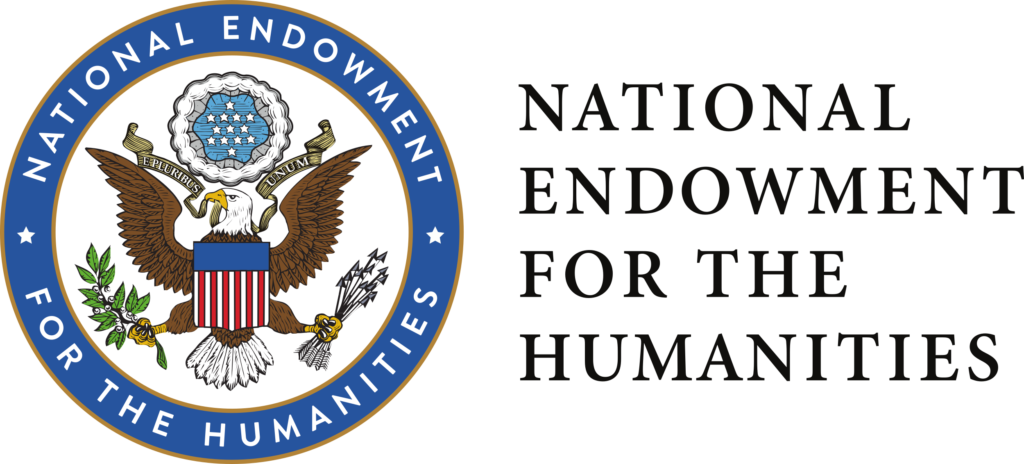View the Printable Schedule [PDF]
Overview: Part 1, June 27-28
Introduction to Themes and Topics (Online)
Our first two days will be over Zoom and will be a general introduction to the themes and topics the rest of the Institute will deal with, including discussions of Anzaldúa’s conceptions of borderlands and how they relate to the topic of religion. After these two online days, participants will have two days to travel to Claremont Graduate University for the in person portion of the Institute.
JUNE 27 Morning Session:
Introductions
Discussion of the Intertwined Histories of Mormonism and Mexico, led by Bowman and Ramirez
Reading: Jason Dormady, “The Mormons in Mexico,” and Matthew Butler, “Porfirian Saints or Latter-day Revolutionaries?” in Dormady and Tamez, eds., Just South of Zion: The Mormons in Mexico and Its Borderlands
JUNE 28 Morning Session:
Discussion of Religion and Borderlands with Bowman and Ramirez
Reading, “The Homeland,” “Movimientos de rebeldía y las culturas que traicionan,” “Entering Into the Serpent,” in Anzaldúa, Borderlands/La Frontera
JUNE 28 Afternoon Session with Dr. Rudy Busto
Reading; Daniel Ramirez, “Introduction,” Migrating Faith
David Carrasco and Roberto Lint Sagarena, “The Religious Vision of Gloria Anzaldúa,” in Espinosa and Garcia, eds., Mexican American Religions
JUNE 29
TRAVEL TO CGU
JUNE 30
TRAVEL TO CGU
6PM Evening Reception at School of Arts and Humanities backyard, 831 N. Dartmouth Ave.
Overview: Part 2, July 1-8
Mormonism and Mexico (In Person)
The second part of the Institute will be in person, with the intent of building collegiality among the participants and our guests, and to pursue projects drawing on the Gomez collection, recently donated to CGU, and other resources in Southern California. Lectures and discussions will touch on public history, oral history, art as religious expression, Bautista’s La Evolución de Mexico, Anglo Mormon Mexican colonies, and comparative analysis to other contemporary religious movements in Mexico. Activities will include a visit to a Spanish-speaking LDS congregation and a visit to the Cheech Marin Center for Chicano Art, Culture, & Industry.
Face to Face Sessions: Morning Session, 9-12 AM, Afternoon Session, 2-4 PM
JULY 1 Morning Session
Introduction of the Gomez Collection in Mexican Mormon History
9AM Presentations on Public History and Museum Studies, Dr. Josh Goode, Dr. Romeo Guzman
10AM Lisa Crane and Fernando and Enriqueta Gomez: Introduction to the Gomez Collection
11AM Panel Discussion: Dr. Goode, Dr. Guzman, Fernando and Enriqueta Gomez
JULY 1 Afternoon Session
2PM Dr. Caroline Kline, Introduction to the Global Mormon and Mormon Women’s Oral History Project
2:30PM Discussion with Dr. Kline and Dr. Sujey Vega: Oral History and Latinx Mormonism
Reading: Sujey Vega, “Intersectional Hermanas”
JULY 3
11:30AM Visit to a Spanish-speaking LDS congregation, 175 West Willow St. Pomona
Reading: Ignacio Garcia, Chicano While Mormon, Prologue and Chapters 1-4
Discussion over lunch
1:30PM Late lunch at Claremont Mormon Studies Council Member’s home
JULY 4 Morning Session
The Indigenous Mormonism of Margarito Bautista
Discussion led by Dr. Elisa Pulido
Reading: Elisa Pulido, “Introduction to Bautista Readings” (read this first); Elisa Pulido, “Margarito Bautista, Mexican Politics”; Chapter 6: Bautista’s Magnum Opus”; Margarito Bautista, La Evolución de Mexico, Selections from Chapters 1-3, 5, 8, 14, 15, 19, 27, 29, 31 and 32.
JULY 4 Afternoon Session
Discussion led by Bowman and Ramirez
Reading: Timothy Matovina, “An Evolving Tradition,” and “Nuestra Madre Querida,” in Guadalupe and her Faithful
JULY 5 Morning Session
Indigenous Mormonism and Latino Pentecostalism
Presentation by Dr. Patricia Fortuny, followed by discussion
Reading: Jason Dormady, “La Luz del Mundo and Hermosa Provincia,” and “The Fullness of the Kingdom of God and the New Jerusalem,” in Primitive Revolution
JULY 5 Afternoon Session
Consultations with Dr. Fortuny
JULY 6 Morning Session
The Anglo Mormonism of Thomas Romney
Discussion led by Bowman and Ramirez
Reading: Thomas Romney, Mormon Colonies in Mexico, chapters 3-11
JULY 7 Morning Session
Anglo Mormonism and German Mennonites
Discussion with Dr. Rebecca Janzen
Reading: Rebecca Janzen, Liminal Sovereignty: Mennonites and Mormons in
Mexican Culture, Chapters 1 and 5
JULY 7 Afternoon Session
Consultations with Dr. Janzen
JULY 8 Morning Session
Art, Religion, and Public History
Discussion with Rebecca Janzen and Daniel Marquez
JULY 8 Afternoon Session
Visit to the Cheech Marin Center for Chicano Art, Culture & Industry
Dinner in downtown Riverside
Overview: Part 3, July 18-22
Projects (Online)
After a week-long break to develop projects, our last few days (over Zoom) will focus on discussions of participants’ projects and how they might engage with the continually dynamic space of religion on the US-Mexican border. Topics covered will include growth rates and future prospects of the LDS church in Mexico. The last three days will be devoted to discussion of participants’ projects, with a day each devoted to syllabi, research projects, and public history.
JULY 18 Morning Session
The Mexican Religious Census and the Future of Mormonism in Mexico
Discussion with Dr. David Knowlton and Dr. Matt Martinich
JULY 19 Morning Session
Mormonism and Immigration Politics in the United States
Discussion led by Bowman and Ramirez
Reading: Brittany Romanello, “Multiculturalism as Resistance: Latina Migrants Navigate US Mormon Spaces” (Dialogue: A Journal of Mormon Thought 53:1) Ignacio Garcia, “Thoughts on Latino Mormons” (Dialogue: A Journal of Mormon Thought 50:4).
JULY 20 Morning Session
Discussion of Syllabi and Teaching
JULY 21 Morning Session
Discussion of Public History
Meeting with NEH officer (tentative)
JULY 22 Morning Session
Discussion of Research Projects

The National Endowment for the Humanities: Mormonism and Mexico: A Case Study in Religion and Borderlands
Any views, findings, conclusions, or recommendations expressed in this {article, book, exhibition, film, program, database, report, Web resource}, do not necessarily represent those of the National Endowment for the Humanities.